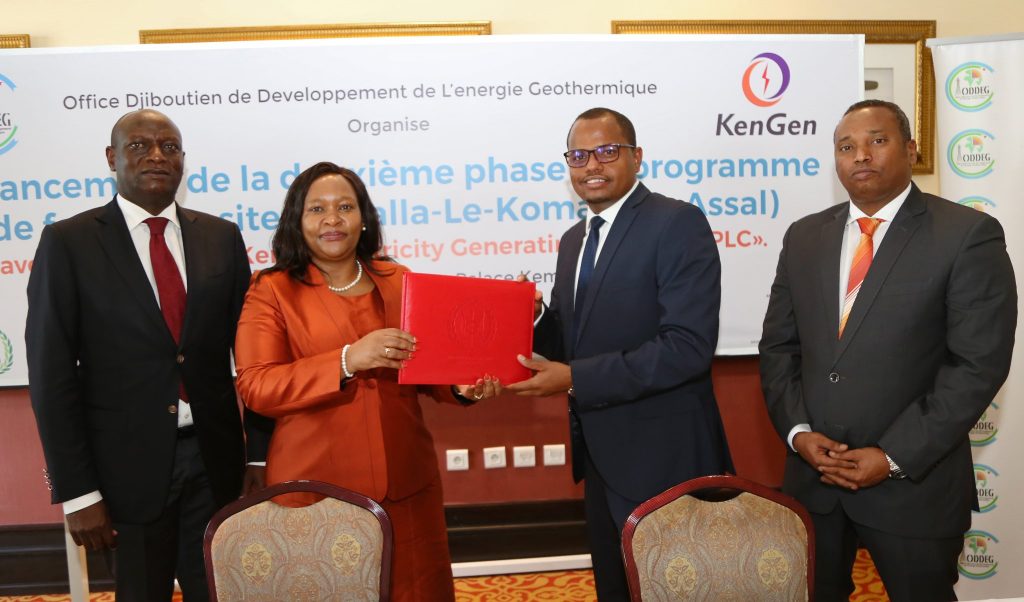Contract signing with ODDEG, Galla Le Koma, Djibouti, with Kenya’s Energy Cabinet Secretary, Hon. Charles Keter, and KenGen Managing Director & CEO, Mrs. Rebecca Miano (source: KenGen) The Kenya Electricity Generating Company (KenGen) has announced that they have started the drilling of geothermal wells in Djibouti. Drilling is expected to take about two months.
This will be the first of three wells that KenGen will drill in Galla Le Koma under a Sh 0.7 billion (USD 6.2 million) contract with the Djiboutian Office of Geothermal Energy Development (ODDEG). We had previously reported on KenGen winning this contract.
The Djibouti project is the third drilling contract that KenGen has executed in the African continent. KenGen is also under contract with Ethiopia Electric Power (EEP) for the drilling of wells in the Tulu Moye geothermal project . This project is expected to be completed within the next two years.
Just a few weeks ago, KenGen was also reported to have completed the drilling of the deepest geothermal well in Ethiopia for the Aluto-Langano project. This is the second of eight wells to be drilled under another contract with the EEP.
“This is a historic moment and we are confident that our team will deliver the project within the contracted time and on budget despite the prevailing circumstances brought about by Covid-19 and the security situation in Ethiopia,” commented KenGen Managing Director Rebecca Miano.
“The drilling of the first well is expected to take about two months to complete as KenGen seeks to export the expertise and experience earned in Olkaria, Naivasha,” she added.
Djibouti currently has no geothermal facilities yet but has an estimated geothermal potential capacity of 1000 MW. If developed, this will be enough to supply the country’s power demand. With an installed power generation capacity of only 126 MW, Djibouti is largely dependent on coal importation while 50% of the population still has no access to electricity.
Source: The Star
